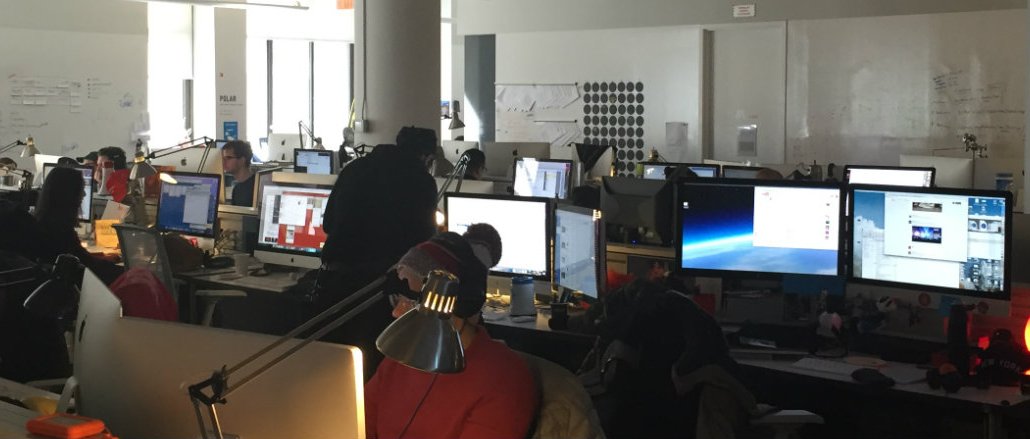‘We’re not a social video network’: Why CNN’s Great Big Story is looking beyond Facebook


Great Big Story, the distributed-video network funded by CNN, does not want you to think of it as just another publisher gaming Facebook.
“We’re not a social video network; we’re a video network that makes content that is highly social,” said Chris Berend, co-founder of Great Big Story and vp of video development for CNN, in an interview following the network’s first-ever NewFront.
For now, that means a lot of Facebook. The videos it makes — for instance, this one about a dog that raises cheetahs or this profile of a secret army that helped defeat Hitler — are reliant on Facebook, which accounts for more than two-thirds of its 40 million monthly video views, according to Tubular.
The challenge for GBS, and similar outfits like LittleThings, is to see how it can grow on other video distribution platforms. In the next six months, GBS plans to launch on Snapchat, Amazon Fire TV, Apple TV, Roku and Go90, among others. Still, Berend is realistic about the media game in the age of platforms.
“We want to own our relationship with the audience, but we’re also not naive in believing that everyone is going to come to our website,” said Berend. “The reality is that people have different places where they consume video, and we need to be there.”
It also speaks to another area of focus for the company: a diversified business model that isn’t reliant on advertising alone. While the company is on track to do 14 sponsored video series by the end of 2016, it has also focused on building a production and licensing business. At its NewFronts presentation, the company announced its first network TV deal, an eight-part hour-long series called “That’s Amazing,” which will spotlight interesting things people are doing with nature. It will air on The Weather Channel this fall, with a short-form version will airing on GBS digital platforms.
GBS is also repackaging existing content. GBS is hawking “Great Big Show,” which repackages some of its best online videos into a half-hour or hour-long format that can be bought by TV networks and distributors. GBS doesn’t yet have a buyer.
By the end of 2017, GBS is targeting sponsored content, original productions and licensing to each account for a third of its business. (Its sponsored series, such as the Hewlett Packard Enterprise-sponsored “The Dreamers,” follow a framework in which most of the videos are editorial and feature only light branding, and then additional custom content made for the brand. The content is produced by GBS’s video team.)
“It’s too much of a crowded market, and too whimsical in terms of the platforms, to rely on one thing,” said Berend.
Of course, this doesn’t mean Great Big Story is going to ignore Facebook — it can’t. It plans to experiment with Facebook Live and other formats that work on the platform — though it’s not likely to do as many text-on-screen silent videos as other publishers that seek scale on the platform.
“There are a lot of easy ways to rack up Facebook videos — all you need is three seconds,” said Berend. “Our challenge is to remain focused on honing an identity and nailing it.”
More in Media

Meta AI rolls out several enhancements across apps and websites with its newest Llama 3
Meta AI, which first debuted in September, also got a number of updates including ways to search for real-time information through integrations with Google and Bing.

Walmart rolls out a self-serve, supplier-driven insights connector
The retail giant paired its insights unit Luminate with Walmart Connect to help suppliers optimize for customer consumption, just in time for the holidays, explained the company’s CRO Seth Dallaire.

Research Briefing: BuzzFeed pivots business to AI media and tech as publishers increase use of AI
In this week’s Digiday+ Research Briefing, we examine BuzzFeed’s plans to pivot the business to an AI-driven tech and media company, how marketers’ use of X and ad spending has dropped dramatically, and how agency executives are fed up with Meta’s ad platform bugs and overcharges, as seen in recent data from Digiday+ Research.





